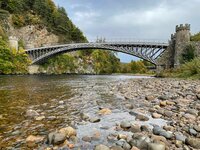Why are whisky distilleries always located on the water?

Why Are Whisky Distilleries Always Located on the Water?
In the world of whisky, there is a fascinating tradition that has endured for centuries: distilleries that always locate near water. This phenomenon begs the question: why is water so crucial to whisky production? Let's explore this intriguing issue and discover why whisky distilleries are always located on the water.
Water Quality: Water is one of the most important ingredients in whisky making. The quality of the water has a direct influence on the taste and overall quality of the final product. Distilleries prefer high-quality spring water that is free of contaminants. By locating near a natural water source, distilleries can ensure the constant supply of clean water, which is essential for creating excellent whisky.
Cooling water: Heat is produced during the distillation process, and it is necessary to remove this heat to protect the equipment and regulate the processes. Water acts as a coolant in this process. Distilleries often use water from nearby rivers or lakes to cool their condensers and regulate the temperature of the distillation. By being close to bodies of water, distilleries have easy access to this cooling water, which increases the efficiency of their production process.
Tradition: The history of whisky production is closely linked to the geography of Scotland, Ireland and other whisky-producing regions. Many of the oldest distilleries were established along rivers and streams, where water was plentiful. This tradition has continued, and even in modern times, new distilleries often choose locations near water out of respect for the craft's long history and traditions.
Transportation: Historically, whisky was often transported by boat, especially in remote areas where land transportation was difficult. By locating close to waterways, distilleries could easily ship their product to markets at home and abroad. Although transportation methods have evolved, proximity to water continues to provide a logistical advantage for distilleries, especially those in remote areas.
Tourism: Today, many distilleries have become popular tourist destinations. The scenic riverbank locations add to the appeal of these destinations. Visitors enjoy tours of the facilities, tastings and learning about the artisanal processes involved in whisky making. The presence of water adds an extra element of charm and aesthetics to the overall experience.
Environmental issues: In addition to the practical benefits, proximity to water also has environmental issues. Distilleries are aware of their impact on the environment and strive to promote sustainable practices. Using water from local sources encourages distilleries to be responsible with water management and environmental conservation. By being aware of the ecological value of water bodies, distilleries can contribute to the conservation of these valuable natural resources.
In short, water plays an essential role in all aspects of whisky production, from the quality of the final product to the logistics of the production process and even the tourist appeal of distilleries. By locating on the water, distilleries can take advantage of the many benefits this natural resource provides, while at the same time becoming an important part of the rich tradition and history of the whisky industry.
Read more about Springbank, Glendronach here
Comments (0)
No comments found.












